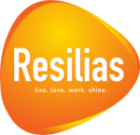

What does it mean to be Assured or Excitable? These characteristics relate to a person’s emotional stability. Stability determines how people cope with stress, setbacks, uncertainty, and ambiguity.
Emotional stability is a potent predictor of performance at work as well as job satisfaction, commitment, and productivity.
Assuredness enables people to appear patient, confident and resilient, even in the face of significant challenges. Assured people are professional, adaptable, steady and reliable. They are often seen as calm, cool, and collected. Assured people find it easier to adapt to work environments where getting ahead often depends on appearing calm, self-confident, and resilient. Assured people may also find it easier to:
While more Assured people can find it easier to get ahead in the workplace, they sometimes struggle when getting along depends on creating strong relationships with their colleagues. Their tendency to moderate their display of energy can cause them to be seen as overly reserved, intimidating, uncaring or aloof. Highly Assured people may find it more difficult to:
Excitability helps people build emotional energy in themselves and others to accomplish new objectives. Excitable people are ambitious, perfectionistic, and focused on continuous improvement. They are often seen as fiery, intense or passionate. Excitable people find it easier to adapt to situations where their role allows them the time and space to reflect and the security to express themselves freely. Excitable people may also find it easier to:
While more Excitable people can find it easier to get along in certain environments, they sometimes struggle in situations when getting ahead requires displaying confidence in the face of change.Their tendency to reflect on their performance can easily become an overused strength, particularly when they face stressful situations. Highly Excitable people may find it more difficult to:
Generally speaking, most personality traits have benefits and drawbacks. Nearly any strength can transform into a weakness if it is overused. However, in the workplace, Assuredness is often viewed more positively than Excitability. This is because people who are highly Excitable are more likely to struggle in the face of stress than those who more Assured.
Those who are highly Excitable may find that somewhat stressful events negatively affect their performance. By contrast, many highly Assured people find that even highly stressful situations do not impede their performance. In fact, many report their performance improves in the face of stress or adverse circumstances.
Additionally, people with very high Excitability can be overly self-critical and struggle with anxiety and negative thinking. They may experience stronger emotions and be more easily upset than their more Assured counterparts. This can have negative implications for their relationships with others and their satisfaction and productivity at work.
There are three key elements to Stability: Composure, Resilience, and Control.
There are many ways to improve Composure, Resilience, and Control to moderate the overuse of Assurance or Excitability. Use the suggestions below as a starting point to begin to clarify your strategy to increase your impact and effectiveness.

Work with a trusted colleague to practice better mental and physical responses to your triggers. Set a target to reduce the number of times you struggle to maintain composure.

If you have an overwhelming workload, identify what is good enough for each task. Practice reducing your need for excessive information to make decisions. Don’t be a perfectionist. Make sure to submit work on time so that you don’t create a backlog, increasing stress and the need for rework.

Take a deep breath, stretch and physically relax. The first step to managing stress is to activate a state of calm. In order for the mind to be at peace, the body must first take control. Acknowledge the physical symptoms of panic and worry. This may include inability to move, increased heart rate and breathing. Stop whatever it is you are trying to achieve and simply breathe.

Identify the specific people, tasks, or events that increase, or boost your energy throughout the day as well as those that drain it. Next, identify strategies to maximize your energy boosters and minimize your energy drainers.

Our attitude is roughly the average of the five people with whom we spend the most time. Surround yourself with as many positive people as you can. Use the power of peer pressure to maintain your resolve to achieve important goals.

Use the WOOP process. Imagine an attainable Wish. Next, think clearly about the associated Outcomes. Then, reflect on the Obstacles that stand in the way. Finally, create a specific Plan to address each obstacle.

Learn to suspend disbelief by first listening when you hear a new idea or meet someone new. Wait 24 seconds before saying or thinking something negative. Move to the next level and try to do if for 24 minutes.

Make a conscious choice to let go of unhelpful responses to situations that cause you anxiety. Reflect on what you think, feel, and do in these circumstances. Identify what uncomfortable thoughts, feelings, and behaviors you need to make room for in order to develop new, positive ways of responding.

To think like an optimist, when a problem arises, remind yourself that it is a short-term setback (temporary), just one part of your life (specific), and that it is at least partly due to factors beyond your control (external).